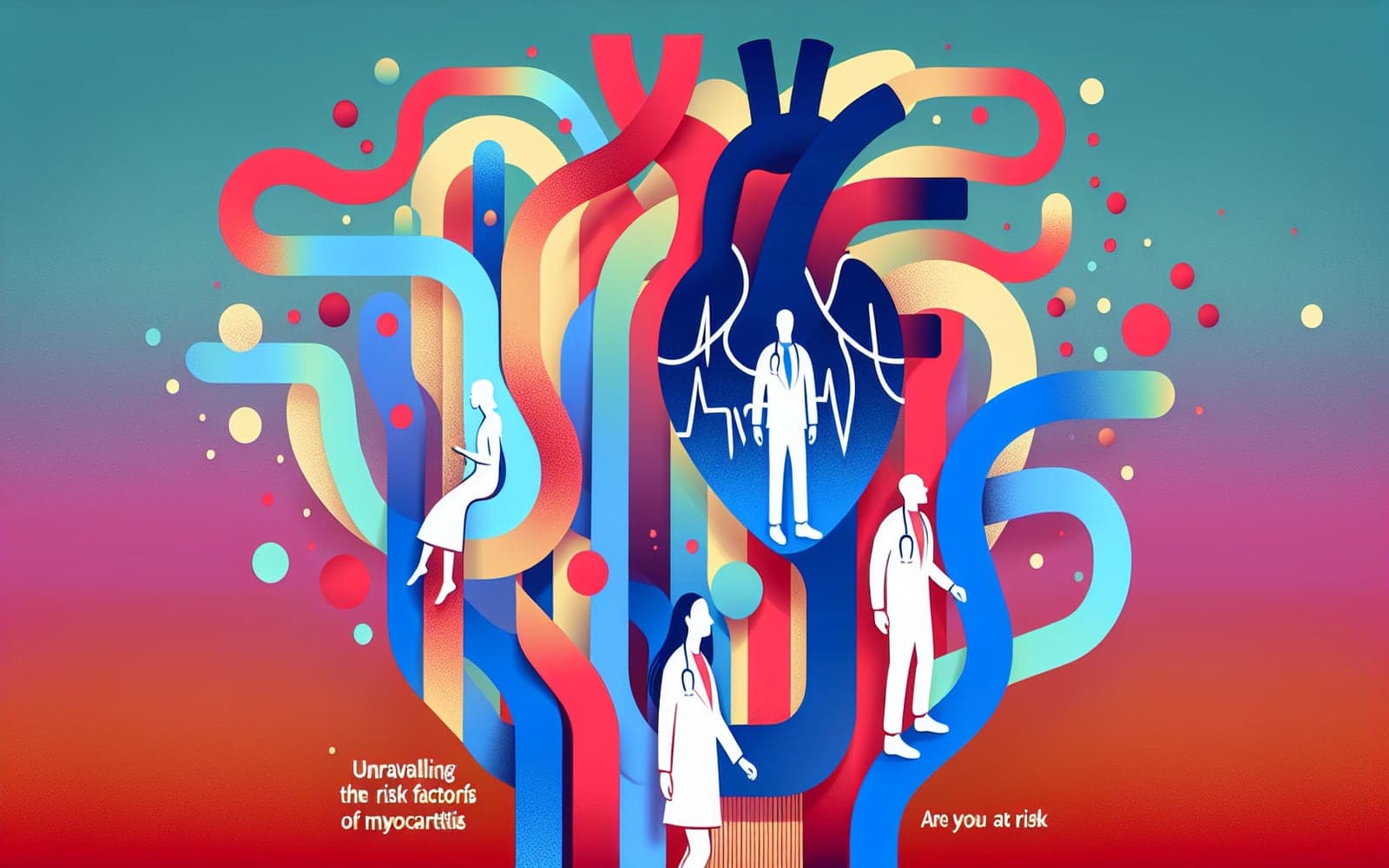Unraveling the Risk Factors of Myocarditis: Are You at Risk?
Published: May 18, 2024

Medically reviewed by Michelina Stoddard | MD, Ph.D, Joan & Sanford I. Weill Medical College of Cornelle University - San Antonio, Texas on May 18th, 2024.
Myocarditis can strike unexpectedly, but understanding its risk factors can help in early intervention and prevention.
Contents
Age and Gender Factors
Myocarditis is more frequently observed in males, particularly those between the ages of 35 to 39. Hormonal differences might contribute to this gender disparity. Although females are also affected, the prevalence is lower compared to males in the same age bracket.
Infections and Immune Responses
Viral infections, especially those affecting the respiratory and gastrointestinal systems, are common triggers for myocarditis. The body's immune response to these infections can mistakenly target heart tissue, leading to inflammation. Other infectious agents like bacteria, fungi, and parasites can also be culprits.

Genetic and Environmental Influences
Some inherited cardiomyopathies may present with myocarditis-like symptoms. Environmental factors, such as exposure to certain drugs or vaccines, have been linked to myocarditis in rare cases. Understanding your family history and potential environmental exposures is important in assessing risk.
Frequently Asked Questions
Males aged 35 to 39 are at higher risk.
Yes, viral infections are a common trigger.
Yes, some inherited conditions can mimic myocarditis.
Rarely, some vaccines have been associated with myocarditis.
Key Takeaways
Understanding risk factors can guide prevention and early diagnosis of myocarditis.
Discuss with Doctronic to evaluate your risk factors for myocarditis and take preventive steps.Related Articles
References
Thevathasan T, Kenny MA, Gaul AL, et al. Sex and Age Characteristics in Acute or Chronic Myocarditis A Descriptive, Multicenter Cohort Study. JACC Adv 2024; 3.
Engler RJ, Nelson MR, Collins LC Jr, et al. A prospective study of the incidence of myocarditis/pericarditis and new onset cardiac symptoms following smallpox and influenza vaccination. PLoS One 2015; 10:e0118283.
This article has been reviewed for accuracy by one of the licensed medical doctors working for Doctronic. Always discuss health information with your healthcare provider.

